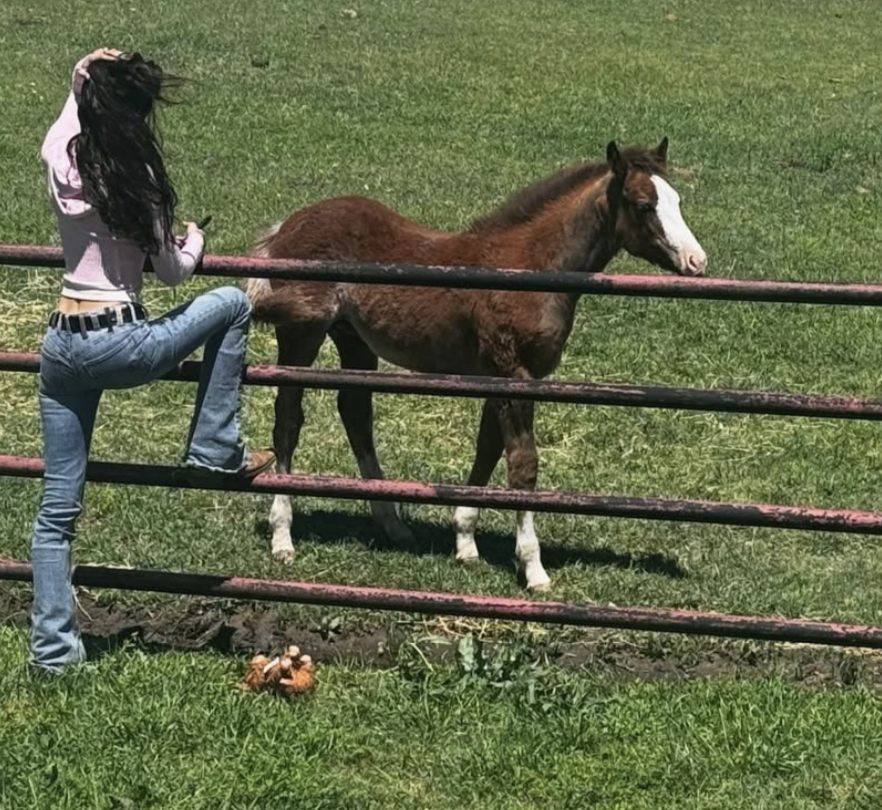@bellahadid
Lets back it with science: Equestrian sports demand that riders remain attuned not only to their own internal states but also to the nuanced emotional cues of their horses — a dynamic interplay that cultivates advanced emotional competencies. Emerging research in equine-assisted learning (EAL) and emotional intelligence (EI) suggests that the very nature of riding fosters key psychological capacities such as self-awareness, empathy, emotional regulation, and resilience — all of which are central to the construct of emotional intelligence.
According to Bar-On (2006), emotional intelligence comprises a constellation of emotional and social abilities, including self-awareness, social awareness, emotion management, adaptability, and interpersonal competence — factors that are strongly predictive of wellbeing and psychological effectiveness. Within the experiential framework of equestrian sport and EAL, these capacities can be meaningfully developed through sustained interaction with emotionally sensitive animals. Horses, by their very nature, demand presence, responsiveness, and an attuned emotional exchange, thereby providing fertile ground for the enhancement of emotional intelligence.
Grootveld (2016), in an exploratory study on EAL within leadership development contexts, found that participants engaging with horses reported deeper emotional insight, heightened self-regulation, and a more authentic connection to their emotional responses. The non-verbal and immediate feedback provided by horses was cited as a unique mechanism through which participants accessed self-awareness and refined their emotional management skills.
Supporting this, research conducted at the University of Sussex (McComb et al., 2023) demonstrated that horses are capable of perceiving and remembering human emotional states, responding to facial expressions and vocal tones with remarkable sensitivity. This emotional receptivity acts as a real-time mirror for the rider, encouraging introspection and fostering a heightened ability to observe, interpret, and regulate one’s emotional states.
Further evidence comes from therapeutic programmes, such as those guided by the Equine-Assisted Growth and Learning Association (EAGALA), which consistently report improvements in emotional regulation, trust, empathy, and personal responsibility across diverse participant populations (Nature Portfolio, 2025; Wikipedia, 2025). These findings suggest that the emotional demands of equestrian engagement — the need to remain calm, centred, and communicative in the presence of a powerful, responsive animal — serve as a continuous exercise in emotional literacy.
Collectively, the research indicates that participation in equestrian activities fosters emotional intelligence in several key ways: by offering immediate, non-verbal emotional feedback through horse behaviour; by requiring sustained mindfulness, emotional presence, and attunement; and by promoting the regulation of emotion under pressure — all of which reflect Bar-On’s (2006) meta-factors of EI, including adaptability, social competence, and positive affect.
Thus, engaging in equestrian sport or structured equine-assisted learning may not only serve as a leisure pursuit or therapeutic intervention but also as a profound training ground for emotional development. The evidence from both experimental studies and qualitative investigations underscores the psychological richness of human-horse interaction. Future research, particularly through longitudinal and controlled designs, is warranted to deepen our understanding of this powerful connection — one that may well hold untapped potential for enhancing emotional intelligence in both clinical and everyday contexts.
Bar‑On, R. (2006). The Bar‑On model of emotional‑social intelligence. Psicothema, 18(supl.), 13‑25.
Grootveld, N. N. (2016). An explorative study to the active aspects of equine‑assisted learning and emotional intelligence development [MSc thesis, University of Twente]. Unpublished summary.
Laborde, S., Ramalho, N., & Morin, E. A. (2019). Emotional competencies training in equestrian sport: A preliminary study. Sport Psychology Journal.
McComb, K., Proops, L., Grounds, K., Smith, A., & Wathan, J. (2023). Emotional awareness in horses: detection of human emotion cues and emotional memory. University of Sussex Research.
Nature Portfolio. (2025). Equine‑assisted interventions for mental health and wellbeing: Meta‑analytic and qualitative findings. Nature Portfolio summaries.
Wikipedia contributors. (2025). Equine‑assisted therapy. In Wikipedia, The Free Encyclopedia. Retrieved Month Day, Year, from https://en.wikipedia.org/wiki/Equine-assisted_therapy





